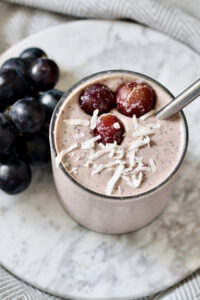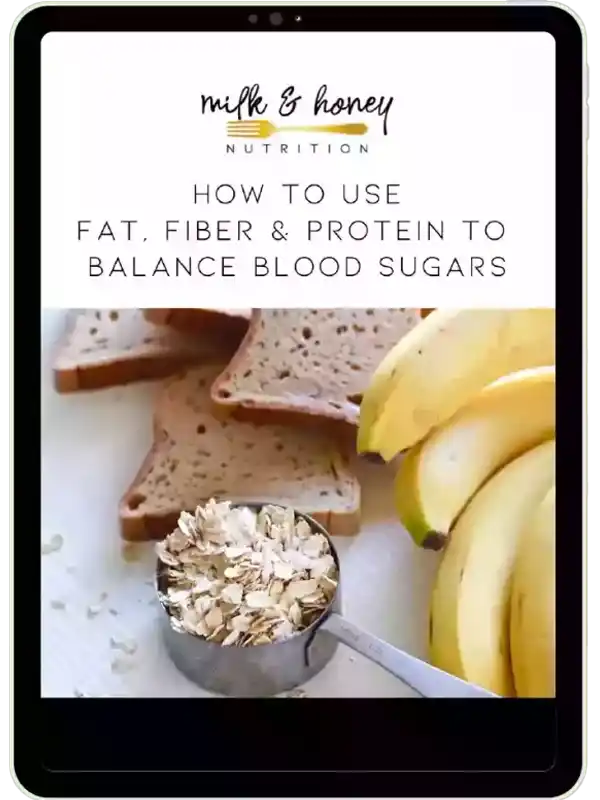Let’s review what the best vitamins for diabetes are and the ones that aren’t worth your money.
From vitamins, to minerals, to functional supplements, there’s a lot of information about what you should be taking when you have diabetes and what might help lower blood sugars. In this article, we’ll cover answer common questions about the best vitamins for diabetes, and review a list of the top 21 vitamins/minerals taken by people with diabetes.
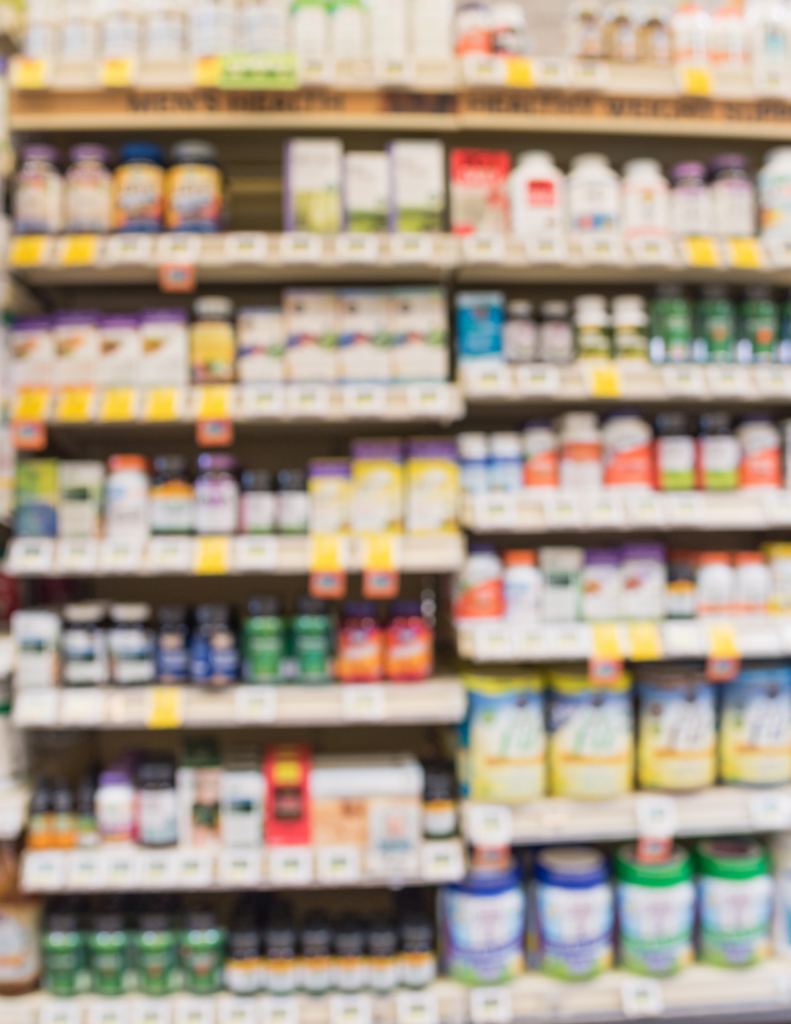
Can a diabetes patient take supplements?
People with diabetes can take supplements, and in some circumstances, when recommended by your physician, should be taking supplements regularly. But, that’s the most important part right there. People with diabetes should always consult their healthcare team before taking a supplement.
*This article is not intended to provide medical advice, diagnosis, opinion, treatment or services. This article and the links contained in it provide general information for educational purposes only. The information provided in this article is not a substitute for medical care. It should not be used in place of the advice of your physician or registered dietitian.*
And, I do want to note that a supplement should not be used in place of a balanced and healthy diet. I would much rather you be getting your daily needs from food than from supplements. That being said, there are some occasions when a supplement may be needed.
Can someone with diabetes take supplements to lower blood sugar?
A quick trip to the vitamin or supplement section of your local grocery store or health food store and you’ll notice there’s often a whole section devoted to blood sugar-related supplements. Can these supplements actually lower blood sugar or cure diabetes? While some may help by making blood sugars a bit easier to manage, no supplement can cure any form of diabetes. And no supplement should be used in place of a medication without specific guidance and direction from your physician.
I know these supplements often come with unrealistic promises that are very enticing. But, I cannot stress enough the importance of discussing any and all supplements with your healthcare team. Some blood sugar related supplements may interact with certain medications, and can have potentially dangerous side effects.
Are there supplements to lower a1c?
Many supplements advertise an ability to lower blood sugars and/or HgbA1c. Unfortunately, if it sounds too good to be true, then it most likely is. Below, I’ll review the data and research on the most common supplements we see advertised to people with diabetes.
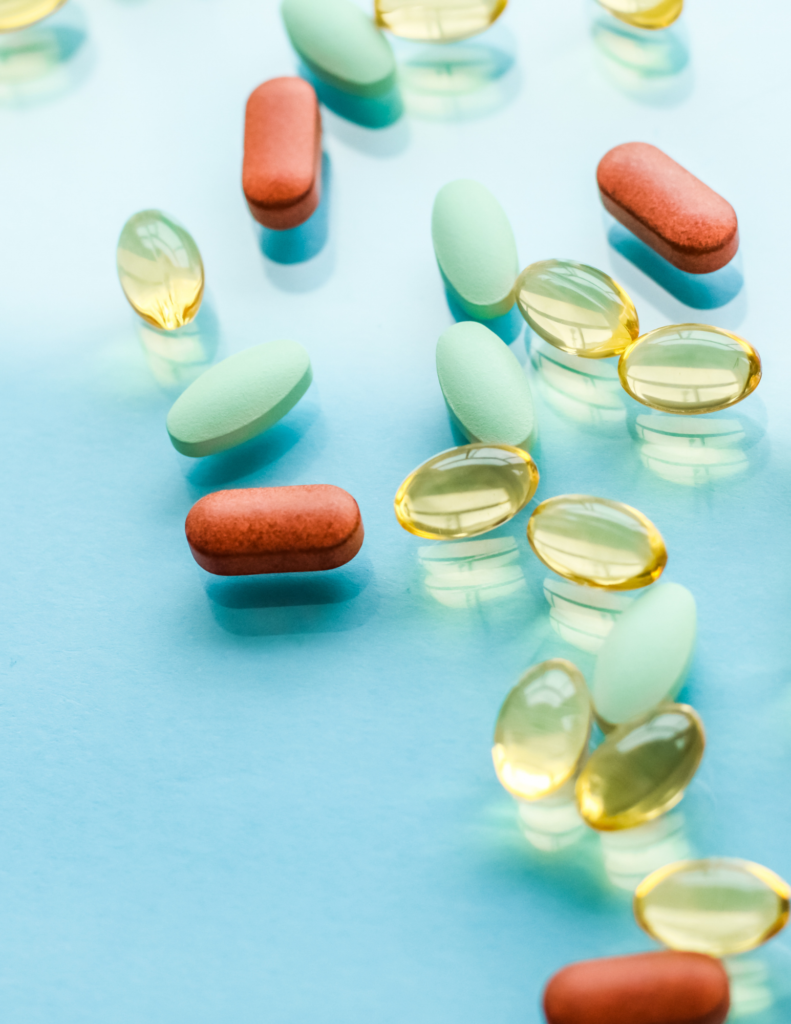
What supplements are bad for blood sugar balance or diabetes?
Even if you think they’re the best vitamins for diabetes, any supplement that could possibly interact with medications you currently take should be avoided. Speaking with your doctor is vitally important before starting a supplement. (Also, anytime your doctor asks what supplements you take, make sure to disclose all of them!) I know at this point, I sound like a broken record, but I see it way too often. People either forget or intentionally hide supplements from their doctor, and end up experiencing some dangerous side effects.
Additionally, excessive amounts of chromium, vitamin E, and/or St. John’s Wort may interact with certain medications that people with diabetes are more likely to be taking. Again, speak with your doctor.
Large amounts of niacin may also raise fasting blood sugar levels for people with diabetes.
Can vitamins make your blood sugar go up?
In addition to the niacin mentioned above, some vitamins and supplements do contain added sugar. This could be for a variety of reasons, but is most likely simply being used to improve taste and palatability. If the vitamin or supplement you are taking contains carbohydrates, make sure to consider that when dosing medication, and preferably take the supplement with a meal or snack that has fiber and protein.
Do effective blood sugar supplements really exist?
Some supplements may play a small role in helping your body use insulin more efficiently and/or helping balance blood sugars. But, no supplement is going to replace a medication. And, often many, if not most, of the supplements marketed as “blood sugar lowering” are a waste of money.
Paying attention to the food you eat and your activity level is going to be a much more effective strategy at managing blood sugars than worrying about the best vitamins for diabetes…
But, I do want to provide you with science-based information since I know many people are curious!
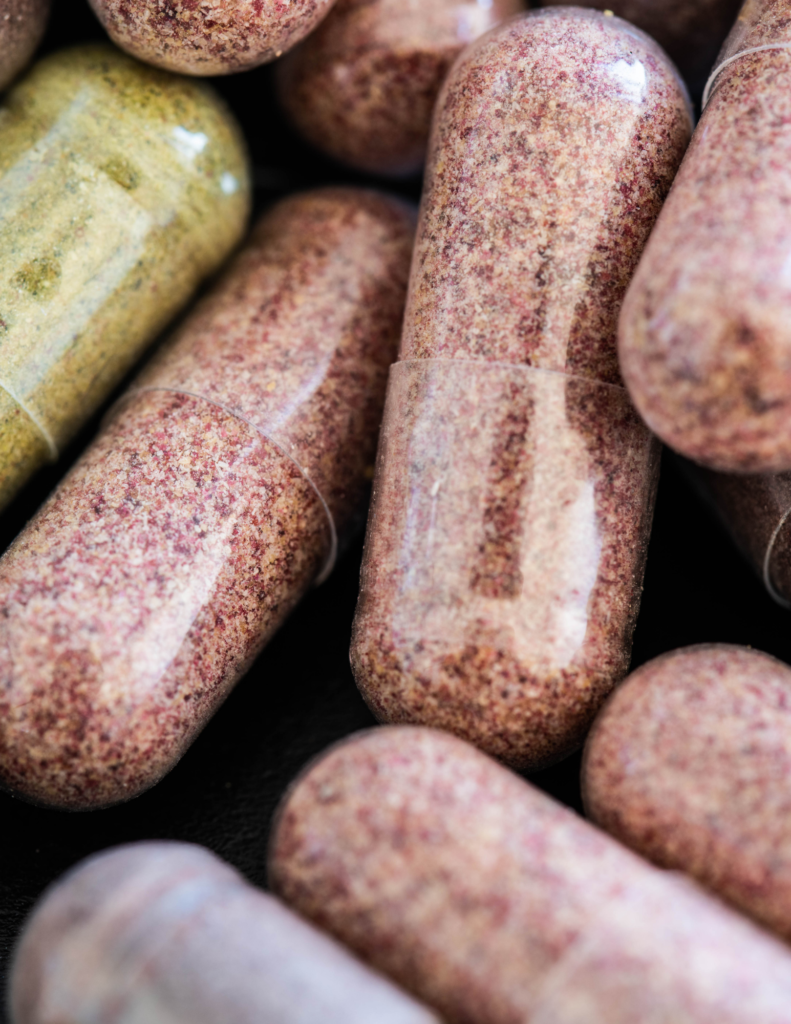
Best supplements for diabetes
Whether you’re looking for the best supplements to lower blood sugar, vitamins to lower blood sugar, or just best vitamins for diabetes in general… there is a lot of information out there!
Below I will cover a few more commonly asked about topics within the diabetes world about supplements, and then will give you an explanation on the most common supplements I get asked about.
Supplements for type 1 diabetes
While there is not a set of supplements that people with type 1 diabetes should for sure take, there are certain nutrients that people with type 1 diabetes have a greater risk of being deficient in. These include Vitamin D, Iron, Vitamin B12, Zinc, other B vitamins and more. Yearly micronutrient blood draws at the direction of your doctor can scan for deficiencies in these and other nutrients.
Best supplements and vitamins for type 2 diabetes
People with type 2 diabetes have many of the same risks for deficiency as people with type 1 diabetes, and should also consult their doctor for regular screenings for nutrient deficiencies. Nutrients at risk of deficiency include: Vitamin D, B Vitamins, Zinc, Magnesium, Potassium, and more. Your doctor may also recommend other preventative or protective supplements for things such as insulin resistance, heart health, and kidney health.
Prenatal vitamins for gestational diabetes
Women with gestational diabetes will need to continue to take a prenatal vitamin after their diagnosis. Nutrient needs do not differ, but your doctor may advise you to choose a prenatal vitamin without added sugar or carbohydrate.
Should people with diabetes take a probiotic?
A growing body of evidence does support the role of probiotics in blood sugar management, heart health, and GI health.
Supplements to take when on Metformin
People with diabetes who take metformin are more likely to be deficient in Vitamin B12. If you take metformin, speak with your doctor about having your B12 levels tested and/or whether or not you should be taking a B12 supplement.
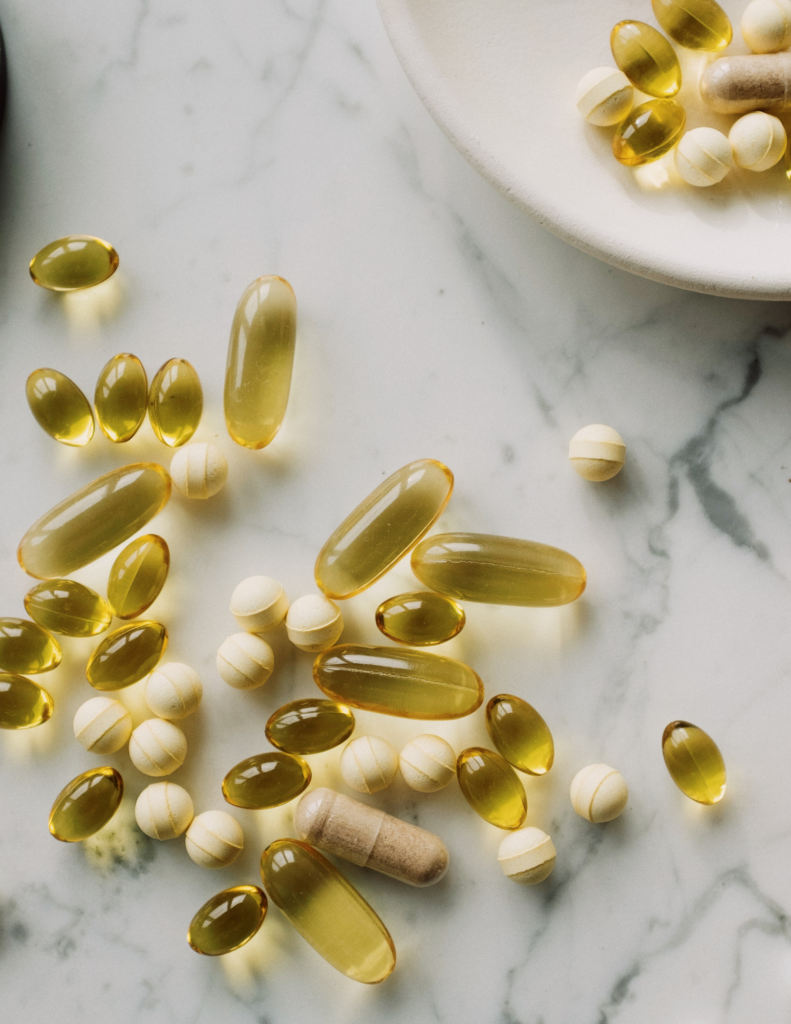
Best supplements for neuropathy and best vitamins for neuropathy
Vitamins and supplements that may help improve symptoms of neuropathy include:
Supplements for retinopathy
Certain nutrient deficiencies can make retinopathy worse. Doctors may recommend any of the following to improve or complement existing retinopathy treatment:
- B vitamins
- Vitamin C
- Zeaxanthin
- Lutein
- Vitamin D
- Vitamin E
- Zinc
- Copper
- Alpha-lipoic acid (ALA)
- N-acetylcysteine

Top vitamin/minerals people take for diabetes
The following vitamins and supplements are often touted as the best vitamins for diabetes… but are they? Is there evidence to support they could actually improve health status or help manage diabetes? (Also, remember you may be advised to take other supplements for completely different reasons unrelated to diabetes.)
| Supplement | What you need to know… | Is there enough evidence, and should you speak to your doctor about taking it fir diabetes management?* |
| Multivitamin | Diabetes alone is not a reason to take a multivitamin, however, if multiple deficiencies are present, a multivitamin can be a convenient way to supplement multiple nutrients at one time. | Yes |
| Probiotics | There is a growing body of scientific evidence to suggest that probiotics may help lower insulin and glucose levels in people with type 2 diabetes. Probiotics also support a healthy immune system, a healthy GI tract, and may possibly promote a healthy heart. | Yes |
| B- vitamin complex | There are 8 different B vitamins, and they all play a role in the body’s ability to convert food into energy. Most people get adequate amounts of most B-vitamins from a varied diet. There is not quality evidence to suggest a B vitamin complex would help manage blood sugars or complications from diabetes, unless a deficiency exists. In fact, high doses of nicotinic acid (B3) can cause high blood sugar. | No |
| B12 | B12 is involved in a number of essential body processes. Supplementation with Vitamin B12 does not help manage blood sugars, however, people with diabetes tend to have lower B12 levels than the general population, especially people taking the drug metformin. People with diabetes should be screened for a deficiency regularly. | Yes |
| Vitamin C | Vitamin C supplementation does not reduce the risk of diabetes, or diabetes complications. And, there is no evidence to suggest it would aid in managing blood sugar levels. | No |
| Vitamin D | Vitamin D plays a role in many body processes including insulin production. Vitamin D deficiency is associated with a higher risk of many diseases including type 1 and type 2 diabetes. Furthermore, people with type 1 and type 2 are also more likely to be deficient in vitamin D. | Yes |
| Omega-3s/Fish Oil | Increased consumption of omega-3 fatty acids, both from supplements like fish oil or from food, are associated with positive heart health outcomes, but according to more recent research, there doesn’t appear to be a direct benefit to diabetes risk or blood sugar metabolism. However, many people with diabetes may have or be at risk for heart disease so it’s important to keep in mind. | Possibly |
| ALA (alpha-lipoic-acid) | ALA is an antioxidant that may help relieve pain associated with diabetic neuropathy, and may help decrease insulin resistance. ALA can be given via IV, injection, or as a supplement. | Possibly |
| Magnesium | Magnesium plays a role in blood sugar metabolism and insulin activity in the body. Magnesium deficiency is associated with an increased risk of type 2 diabetes. Magnesium supplementation may also lower both fasting blood sugar levels and post-meal blood sugars. | Yes |
| Chromium | Chromium plays a role in carbohydrate metabolism and helps support blood sugar balance. But, results are mixed on if supplementation (above usual intake in the diet) is needed. Chromium in supplements is not absorbed as efficiently by the body as it is from food, so the type of chromium you take matters as well. | Possibly |
| Zinc | Zinc is involved in insulin activity in the body and may reduce blood sugar levels. And, some research suggests people with both type 1 and type 2 diabetes would benefit from zinc supplementation. But, larger studies are needed for more definitive answers. | Possibly |
| Cinnamon | Research on cinnamon is mixed. Some studies have shown cinnamon may be helpful in reducing insulin resistance and managing blood sugars, and others have shown no benefit at all. | Possibly |
| Ginger | Some research has shown that modest ginger supplementation may help improve blood glucose levels and HgbA1c levels, as well as some heart health markers associated with diabetes. | Yes |
| Turmeric | Curcumin, the active component of turmeric, may play a role in both prevention and treatment of diabetes. Research suggests it may help improve many common markers of diabetes (blood glucose and insulin resistance). | Yes |
| Protein powder | Protein powders can be included in a balanced diet, but getting protein from food is ideal. If your diet lacks adequate protein, a protein powder low in added sugar may be helpful. | Possibly |
| Resveratrol | Some animal studies have shown resveratrol may help with blood sugar management, but there are not enough human studies to determine safe consumption levels or effective dosages. | No |
| Green tea supplement | Drinking green tea (not in supplement form) is associated with improved blood glucose levels and HgbA1c levels. Additional supplementation beyond drinking green tea is not necessary. | No |
| Bitter melon | Research has shown that bitter melon may aid in diabetes management, however data on bitter melon supplements is too limited to make accurate conclusions about safety and effectiveness. | No |
| Berberine | Berberine has been used for centuries in traditional Chinese medicine to help treat infections, and research does suggest that it may be helpful in increasing insulin sensitivity and insulin production for people with type 2 diabetes. Research also suggests it may increase the effectiveness of some diabetes medications when taken alongside them. | Yes |
| Apple cider vinegar | There is not enough quality research on apple cider vinegar and blood sugars to confidently say it could help. Some small, limited studies have shown promising results, but more research is needed. | Possibly |
| Acetyl-L-Carnitine | L-carnitine may help lower fasting blood sugar levels, HgbA1c, and blood insulin levels. | Possibly |
So, you’ve spoken with your doctor and been advised to start one or more of the above supplements, now what? I recommend going through a reputable source like Fullscript. Nicole Fennell MS, RDN, LD, CLT, owner of Chews Food Wisely has provided her favorite forms and brands for some of the above listed supplements.
PDF Download of Chart: Top Supplements People Take for Diabetes
Download a printer friendly version of this chart on the best vitamins for diabetes.
At times, supplements may be needed or helpful, but a balanced diet is far more effective at delivering nutrients than a supplement. Make sure to check out The Easy Diabetes Cookbook!




